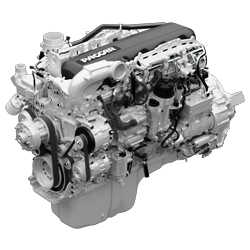C2837 Engine Trouble Code
Meaning of C2837 engine trouble code is a kind of chassis trouble code and C2837 if your catalytic convertor fails completely, you eventually won't be able to keep the car running. Your gas mileage will also be terrible, so you should try and fix it as soon as you can. Unfortunately, the average replacement cost is around $2,140 and you can't do it yourself unless you're an experienced mechanic.
C2837 Fault Symptoms :
|
If one of these reasons for C2837 code is occuring now you should check C2837 repair processes.
Now don't ask yourself; What should you do with C2837 code ? The solution is here : |
C2837 Possible Solution:

|
Power Steering Pressure (PSP) Switch Malfunction In Key On, Engine Off Self-Test, this DTC indicates the PSP input to the PCM is high. In Key On, Engine Running Self-Test, this DTC indicates that the PSP input did not change state. Steering wheel must be turned during Key On, Engine Running Self-Test PSP switch/shorting bar damaged SIG RTN circuit open PSP circuit open or shorted to SIGRTN PCM damaged. |
C2837 Code Meaning :
| C | 2 | 8 | 3 | 7 |
|---|---|---|---|---|
| OBD-II Diagnostic Chassis (C) Trouble Code For Engine | Fuel And Air Metering (Injector Circuit Malfunctions Only) | Engine Oil Temperature Sensor Malfunction | Injection Pump Fuel Metering Control 'A' High (Cam/Rotor/Injector) | Shift/Timing Solenoid Malfunction/ 3-2 Shift Solenoid Circuit Electrical |
The catalytic converter has an oxygen sensor in front and behind it. When the vehicle is warm and running in closed loop mode, the upstream oxygen sensor waveform reading should fluctuate.
C2837 OBD-II Diagnostic Chassis (C) Trouble Code DescriptionC2837 engine trouble code is about Shift/Timing Solenoid Malfunction/ 3-2 Shift Solenoid Circuit Electrical.Main reason For C2837 CodeThe reason of C2837 OBD-II Engine Trouble Code is Engine Oil Temperature Sensor Malfunction. |
C2837 DTC reports a sensor fault, replacement of the sensor is unlikely to resolve the underlying problem. The fault is most likely to be caused by the systems that the sensor is monitoring, but might even be caused by the wiring to the sensor itself.

